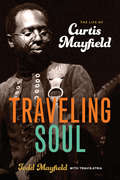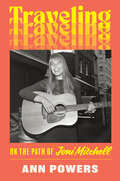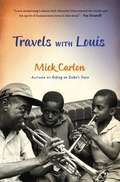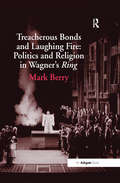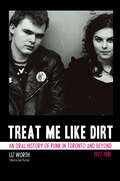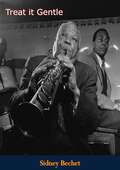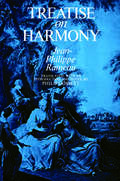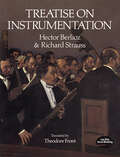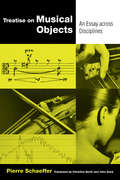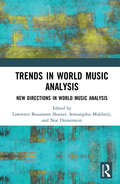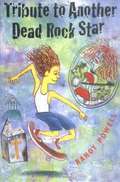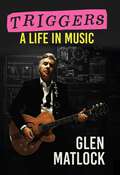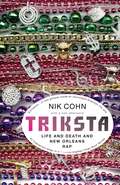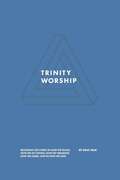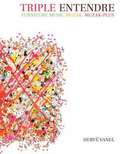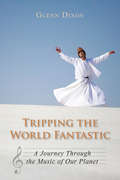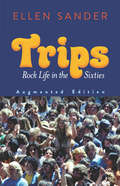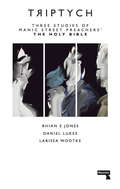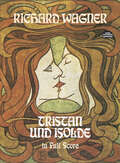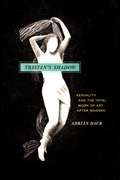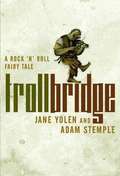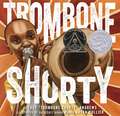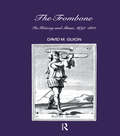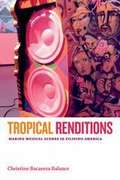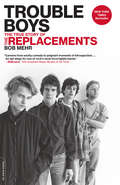- Table View
- List View
Traveling Soul: The Life of Curtis Mayfield
by Todd Mayfield Travis AtriaCurtis Mayfield was one of the seminal vocalists and most talented guitarists of his era, and his music played a vital role in the civil rights movement: "People Get Ready" was the black anthem of the time. In Traveling Soul, Todd Mayfield tells his famously private father's story in riveting detail. Born into dire poverty, raised in the slums of Chicago, Curtis became a musical prodigy, not only singing like a dream but growing into a brilliant songwriter. In the 1960s he opened his own label and production company and worked with many other top artists, including the Staple Singers. Curtis's life was famously cut short by an accident that left him paralyzed, but in his declining health he received the long-awaited recognition of the music industry. Passionate, illuminating, vivid, and absorbing, Traveling Soul will doubtlessly take its place among the classics of music biography.
Traveling: On the Path of Joni Mitchell
by Ann Powers*An Observer Best New Biographies of 2024*Celebrated NPR music critic Ann Powers explores the life and career of Joni Mitchell in a lyrical style as fascinating and ethereal as the songs of the artist herself..“What you are about to read is not a standard account of the life and work of Joni Mitchell. Instead, it’s a tale of long journeying through a life that changed popular music: of a homesick wanderer forging ahead on routes of her own invention, and of me on her trail, heading toward the ringing of her voice.”—From the introductionFor decades, Joni Mitchell’s life and music have enraptured listeners. One of the most celebrated artists of her generation, Mitchell has inspired countless musicians—from peers like James Taylor, to inheritors like Prince and Brandi Carlile—and authors, who have dissected her music and her life in their writing. At the same time, Mitchell has always been a force beckoning us still closer, as—with the other arm—she pushes us away. Given this, music critic Ann Powers wondered if there was another way to draw insights from the life of this singular musician who never stops moving, never stops experimenting.In Traveling, Powers seeks to understand Mitchell through her myriad journeys. Through extensive interviews with Mitchell's peers and deep archival research, she takes readers to rural Canada, mapping the singer’s childhood battle with polio. She charts the course of Mitchell’s musical evolution, ranging from early folk to jazz fusion to experimentation with pop synthetics. She follows the winding road of Mitchell’s collaborations with other greats, and the loves that emerged along the way, all the way through to the remarkable return of Mitchell to music-making after the 2015 aneurysm that nearly took her life.Along this journey, Powers’ wide-ranging musings on the artist’s life and career reconsider the biographer’s role and the way it twines against the reality of a fan. In doing so, Traveling illustrates the shifting nature of biography, and the ultimate contradiction of celebrity: that an icon cannot truly, completely be known to a fan.Kaleidoscopic in scope, and intimate in its detail, Traveling is a fresh and fascinating addition to the Joni Mitchell canon, written by a biographer in full command of her gifts who asks as much of herself as of her subject.
Travels with Louis
by Mick Carlon"When Louis was home in Queens, neighborhood kids would gather around as he brought them into jazz. His music still vibrantly lives around the world, and his spirit of humaneness lives in Travels with Louis by Mick Carlon, teacher of jazz to the young of all ages."-Nat Hentoff"Thanks to his friendship with the great Louis Armstrong, twelve-year old Fred sees his world expand from ice cream and baseball in Queens to jazz at the Village Vanguard, a civil rights sit-in in Nashville, and ecstatic concerts in London and Paris. A wonderful story, which rings true on many levels."-Michael Cogswell, director, Louis Armstrong House Museum"Carlon is driven by a love divided evenly between the subject and the act of writing itself."-Brian Morton, author of The Penguin Guide to JazzPraise for Mick Carlon's Riding on Duke's Train:"In schools where students are lucky enough to experience classroom jazz studies, this title, combining rich musical history and a 'you are there' approach, is a natural."-Kirkus Reviews"Enthralling. . . . An adventure story with a smart, historical framework."-ForeWord, Recommended Books for Kids"A ripping good yarn."-Brian MortonQueens, 1959. Twelve-year-old Fred loves reading, baseball, and playing trumpet with his neighbor, Louis Armstrong. Fred accompanies Louis to Nashville, where he encounters a Civil Rights lunch counter strike, and to London and Paris. Characters include Langston Hughes, Dizzy Gillespie, and Duke Ellington. Says jazz photographer Jack Bradley, "Reading this book is like visiting my friend again. This is the way he was, folks."
Treacherous Bonds and Laughing Fire: Politics and Religion in Wagner's Ring
by Mark BerryMark Berry explores the political and religious ideas expounded in Wagner's Ring through close attention to the text and drama, the multifarious intellectual influences upon the composer during the work's lengthy gestation and composition, and the wealth of Wagner source material. Many of his writings are explicitly political in their concerns, for Wagner was emphatically not a revolutionary solely for the sake of art. Yet it would be misleading to see even the most 'political' tracts as somehow divorced from the aesthetic realm; Wagner's radical challenge to liberal-democratic politics makes no such distinction. This book considers Wagner's treatment of various worlds: nature, politics, economics, and metaphysics, in order to explain just how radical that challenge is. Classical interpretations have tended to opt either for an 'optimistic' view of the Ring, centred upon the influence of Young Hegelian thought - in particular the philosophy of Ludwig Feuerbach - and Wagner's concomitant revolutionary politics, or for the 'pessimistic' option, removing the disillusioned Wagner-in-Swiss-exile from the political sphere and stressing the undoubtedly important role of Arthur Schopenhauer. Such an 'either-or' approach seriously misrepresents not only Wagner's compositional method but also his intellectual method. It also sidelines inconvenient aspects of the dramas that fail to 'fit' whichever interpretation is selected. Wagner's tendency is not progressively to recant previous 'errors' in his oeuvre. Radical ideas are not completely replaced by a Schopenhauerian world-view, however loudly the composer might come to trumpet his apparent 'conversion'. Nor is Wagner's truly an Hegelian method, although Hegelian dialectic plays an important role. In fact, Wagner is in many ways not really a systematic thinker at all (which is not to portray him as self-consciously unsystematic in a Nietzschean, let alone 'post-modernist' fashion). His tendency, rather, is agglomerative,
Treat Me Like Dirt: An Oral History of Punk in Toronto and Beyond, 1977–1981
by Liz WorthThis compendium of interviews with key players in the Toronto punk scene is &“easily one of the best rock biographies you&’ll read this year.&” (Montreal Mirror) Treat Me Like Dirt captures the personalities that drove the original Toronto punk scene. This is the first book to document the histories of the Diodes, Viletones, and Teenage Head, along with other bands such as the B-Girls, Curse, Demics, Dishes, Forgotten Rebels, Johnny & the G-Rays, the Mods, the Poles, Simply Saucer, the Ugly and more. Also included are interviews from fans that brought the punk scene to life in Toronto. This book is a punk rock road map, full of chaos, betrayal, pain, disappointments, failure, success, and the pure rock &’n&’ roll energy that frames this layered history of punk in Toronto and beyond. Treat Me Like Dirt is a story assembled from individual personal stories that go beyond the usual &“we played here, this famous person saw us there&” and into sex, drugs, murder, conspiracy, booze, criminals, biker gangs, violence, art (yes, art) and includes one of the last interviews with the late Frankie Venom, the singer of Teenage Head. Including a wealth of previously unpublished photographs, Treat Me Like Dirt is the uncensored oral history of the 1977 Toronto punk explosion. Exclusive to this edition is a selected discography of all key Toronto punk releases referenced in the book, contributed by Frank Manley, author of Smash The State, the acclaimed and pioneering discography of Canadian punk, and subsequent vinyl compilations, that activated the current international interest in Canadian punk from the &‘70s and early &‘80s.
Treat it Gentle: An Autobiography
by Sidney BechetThe Autobiography of Sidney Bechet. 1897-1959, Clarinetist, Saxophonist and Composer.Fifty years after hearing Sidney Bechet (1897-1959) in 1923, Duke Ellington recalled, "I have never forgotten the power and imagination with which he played." The first great jazz soloist, Bechet was a genius of the clarinet and the notoriously difficult soprano saxophone. In a career that spanned five decades and two continents he worked with Bunk Johnson, King Oliver, Duke Ellington, Josephine Baker, Jelly Roll Morton, and Louis Armstrong. He was a giant in early New Orleans jazz and a pioneer of improvisation whose contribution to the music, from the traditional to the avant-garde, has been a vital and lasting one.-Print ed.
Treatise on Harmony (Dover Books On Music: Analysis)
by Jean-Philippe RameauThe Traité de l'harmonie of Jen-Philippe Rameau is one of the most important books in the history of Western music. Written while Rameau was still a relatively obscure organist and music master at Clermont-Ferrand, the book received but one printing during Rameau's life, in 1722, shortly before he settled in Paris. The Traité was immediately recognized as a profound advance in musical theory, however, and it established Rameau's reputation as a theorist. His book was the first to codify those principles of tonality that were to dominate the music of the West for almost two centuries. Even today the theories of Rameau remain the basis for the study of harmony.Rameau's Traité de l'harmonie is divided into four books, the first of which presents the mathematical basis from which Rameau sought to derive his theories. Book Two may be considered the most important section of the Traité; in it Rameau generates his entire harmonic system from fundamental principles, explaining intervals, chords, and modes -- everything, in fact, essential to musical composition in tonal style. Working from the principles developed in Books One and Two, Book Three treats the practical rules of composition, including such topics as harmonic modulation and chord progressions. Book Four concerns the practical art of accompaniment on harpsichord or organ, including the realization of a figured bass. Corrections added by Rameau in a supplement are included in the text, and all the musical examples have been reset in modern musical notation. In addition, two pages from a unique copy of the first issue of the first edition are given in facsimile. The translator's introduction discusses the history of the work, Rameau's mathematics, and his place in the history of music theory.
Treatise on Instrumentation
by Richard Strauss Hector BerliozThe most influential work of its kind ever written, appraising the musical qualities and potential of over 60 commonly used stringed, wind and percussion instruments. With 150 illustrative full-score musical examples from works by Berlioz, Mozart, Beethoven, Gluck, Weber, Wagner, and others, and numerous smaller musical examples. Complete with Berlioz' chapters on the orchestra and on conducting. Translated by Theodore Front. Foreword by Richard Strauss. Glossary.
Treatise on Musical Objects: An Essay across Disciplines
by Pierre SchaefferThe Treatise on Musical Objects is regarded as Pierre Schaeffer’s most important work on music and its relationship with technology. Schaeffer expands his earlier research in musique concrète to suggest a methodology of working with sounds based on his experiences in radio broadcasting and the recording studio. Drawing on acoustics, physics, and physiology, but also on philosophy and the relationship between subject and object, Schaeffer’s essay summarizes his theoretical and practical work in music composition. Translators Christine North and John Dack present an important book in the history of ideas in Europe that will resonate far beyond electroacoustic music.
Trends in World Music Analysis: New Directions in World Music Analysis
by Lawrence Beaumont ShusterThis volume brings together a group of analytical chapters exploring traditional genres and styles of world music, capturing a vibrant and expanding field of research. These contributors, drawn from the forefront of researchers in world music analysis, seek to break down barriers and build bridges between scholarly disciplines, musical repertoires, and cultural traditions. Covering a wide range of genres, styles, and performers, the chapters bring to bear a variety of methodologies, including indigenous theoretical perspectives, Western music theory, and interdisciplinary techniques rooted in the cognitive and computational sciences. With contributors addressing music traditions from Africa, Asia, Europe, and the Americas, this volume captures the many current directions in the analysis of world music, offering a state of the fi eld and demonstrating the expansion of possibilities created by this area of research.
Tribute to Another Dead Rock Star
by Randy PowellGrady is skateboarding toward a major decision. No longer able to live with his grandmother, fifteen-year-old Grady Grennan has to find a new address. one option is to move in with his mentally disabled half brother, Louie, in Seattle. But that poses a problem: Louie's adoptive mother, Vickie, and Grady are about as compatible as Mozart and heavy metal. Nevertheless, Grady's testing the waters. He's in Seattle for a concert tribute to his and Louie's mother, a grunge rock icon who died three years ago. Grady has been invited to speak at the tribute, but what is he supposed to say to thousands of adoring fans about a mother who abandoned her sons in favor of a musical career? Both humorous and deeply moving, Tribute to Another Dead Rock Star poses challenging, provocative questions to all sorts of readers -- cynics, liberals, slackers, and rock stars included.
Triggers: A Life In Music
by Glen MatlockThe life and career of Sex Pistols legend Glen Matlock through the lens of thirty of his most formative songs: a one-of-a-kind insight into the ultimate icons of punk.Courting controversy wherever they went, the Sex Pistols embraced shock value and pushed boundaries, generating headlines and public outrage. Sharing insider tales of the Sex Pistols' earliest gigs and stormiest reunions, as well as their most idiosyncratic inter-band dynamics, Glen Matlock tells his story through the impact 30 songs made in his life, including how &“Starman&” by David Bowie reminded him of his love for Anthony Newley or &“Three Button Hand Me Down&” by The Faces spoke to his hardscrabble early life in London. Matlock&’s story is the pioneering story of punk rock yet, having performed and recorded with so many musical luminaries over the decades, Glen also reflects on his time with the likes of Iggy Pop, David Bowie, the Faces, Blondie, Primal Scream, and many more.
Triksta: Life and Death and New Orleans Rap
by Nik CohnWhat lunacy would cause a 55-year-old white male, neither lean nor hungry, to embroil himself in the world of New Orleans rap, not merely as an observer, but as an active participant - ideas man, talent-spotter, lyricist, and would-be producer? And why did his experience, after many tribulations, end up so profoundly joyous and fulfilling? Nik Cohn has loved (and hated) hip-hop since its birth, thirty years ago, and loved (and hated) New Orleans for even longer. The city has haunted him from childhood, an addiction he's never wanted to kick. But nothing prepared him for the experience of being pitched, more or less by accident, into the role of Triksta, rap impressario. A white alien in a black world, with no funding or qualifications, and not a clue what he was doing, he had to rethink himself from scratch. Surrounded by a cast-list that included such names as Choppa and Soulja Slim, Big Ramp and Lil T, Bass Heavy, Fifth Ward Weebie, and Shorty Brown Hustle, he entered a world of tiny backstreet studios, broken-down slums and gun turfs, almost unimaginable to those who know New Orleans only as the touristic Big Easy. Triksta is the story of a three-year odyssey that became all-consuming - a journey to the heart of rap, and New Orleans, and self-knowledge. Hilarious, tragic, startling, and exhilarating, sometimes all at once, it is Nik Cohn's greatest book.
Trinity Worship: Becoming Like Christ In How We Relate, How We Do Things, How We Organize, How We Learn, And How We Lead.
by Dave YaukEndorsement from Charlie Hall: In this day and time, we need a loud grace-filled call back to Biblical wisdom around worship as a fully orbed experience of God as Trinity. The people of God need the Father’s heart, the work of Jesus, and the experience of the Holy Spirit. Trinity worship is that call to the Church.The Trinity is not just an "I" but a "We." We, to the contrary, live in a modern age overwhelmed with personalized worship and discipleship methods. People roam about desperately trying to build their own fame and kingdoms all the while bearing the fruit of anxiety, stress, and burden. Deep within we know we are meant to point to something outside and greater than ourselves, but our attempts to give allegiance to lesser loves and benign kings sitting high on imaginary thrones have left us empty. Trinity Worship sheds light on the perfection we're searching for. The word that best describes the pursuit of what is ultimate is worship. Worship goes beyond just singing. It's a world word. It's an everything word. Who or what we honor as an authority, ruler, and as worthy of our trust, will determine how we handle all matters pertaining to home, work, and play. This book ponders deeply the creativity, family, and friendly nature of God and his kingdom in order to best describe how we as humans are to fully enjoy our existence. The Trinity has a way he relates, a way he does things, a way he teachers and desires us to learn, an order for life, and a clear mission. By trusting in him, pointing to him, bowing to his reign, and following after his nature as we carry his image, we will bear the fruit of life, joy, and peace.
Triple Entendre: Furniture Music, Muzak, Muzak-Plus
by Herve VanelTriple Entendre discusses the rise and spread of background music in contexts as diverse as office workplaces, shopping malls, and musical performance. Hervé Vanel examines background music in several guises, including Erik Satie's "Furniture Music" of the late 1910s and early 1920s, which first demonstrated the idea of a music not meant to be listened to, and the Muzak Corporation's commercialized ambient music that became a predominant feature of modern life in the 1940s. Vanel's discussion culminates in the creative response of the composer John Cage to the pervasiveness and power of background music in contemporary society. By examining the subterranean connections existing between these three formulations of a singular idea, Triple Entendre analyzes and challenges the crucial boundary that separates an artistic concept from its actual implementation in life.
Tripping the World Fantastic: A Journey Through the Music of Our Planet
by Glenn DixonA fascinating journey through the world’s musical cultures. Every culture on Earth has music. Every culture that’s ever existed has had it, but we don’t exactly know why. Music is not like food, shelter, or having opposable thumbs. We don’t need it to live, and yet we can’t seem to live without it. Glenn Dixon travels the globe exploring how and why people make music. From a tour of Bob Marley’s house to sitar lessons in India, he experiences music around the world and infuses the stories with the latest in brain research, genetics, and evolutionary psychology. Why does music give us chills down the backs of our necks? What exactly are the whales singing about and why does some music stick in our minds like chewing gum? Through his adventures, Dixon uncovers the real reasons why music has such a powerful hold on us – and the answers just might surprise you.
Trips: Rock Life in the Sixties—Augmented Edition
by Ellen Sander"Simply one of the best pieces of rock reportage ever written." — Los Angeles Review of BooksAs a pioneering rock journalist for Hit Parader, Vogue, Saturday Review, and other publications, Ellen Sander had a backstage pass to the hottest music scenes of the 1960s. In this feast of juicy anecdotes and keen social commentary, she draws upon her professional and personal experiences to chronicle pop culture's highs and lows during the turbulent decade. Join her for weird and wild road trips with companions ranging from Yippies to the members of Led Zeppelin. Stops along the way include the folk music clubs of Greenwich Village, Haight-Ashbury in its riotous heyday, and the euphoric festivals at Monterey and Woodstock."It is a memoir, a sourcebook, and a love letter," Sander writes, "a recollection of a time, parenthesized by ambivalence and apathy, a search for the ultimate high, a generation with an irrepressible vision, its art, artists, its audience, and the substance of its statement." This expanded edition of Trips adds "The Plaster Casters of Chicago," Sander's seminal piece on groupie culture, the lengthy "Concerts and Conversations," as well as a new Preface and chapter postscripts.
Triptych: An Examination of the Manic Street Preachers Holy Bible
by Larissa Wodtke Rhian E. JonesThe UK alternative rock band, Manic Street Preachers, were and remain one of the most interesting, significant, and best-loved bands of the past thirty years. Their third album The Holy Bible (1994) is generally acknowledged to be their most enduring and fascinating work, and one of the most compelling and challenging records of the nineties. Triptych reconsiders The Holy Bible from three separate, intersecting angles, combining the personal with the political, history with memory, and popular accessibility with intellectual attention to the album's depth and complexity.
Tristan und Isolde in Full Score (Dover Opera Scores)
by Richard WagnerAmong musicologists and serious lovers of music, Wagner's Tristan und Isolde is generally considered the high point of orchestration in the musical tradition of nineteenth-century Europe. It shows in most successful form Wagner's unsurpassed gift for using the instruments of the orchestra, and generations of students have worked with it to learn its technique.Tristan und Isolde also has a remarkable historical position. It was the opera that most of the post-Wagnerians used to build upon, and it was also the opera that the anti-Wagnerians seized upon very frequently for their attacks and for their attempts to move musically away from Wagnerism. Accepted or rejected, it has been the work with which late nineteenth- and early twentieth-century musicians had to come to terms, and much musical history of this period can be understood through it.This edition reproduces the full orchestral score in a clear, modern engraving for easy reading and piano study, with large legible notation. Do not confuse this with a piano rendering; it is a full orchestral score. In addition to its obvious uses for study, this score is also an indispensable associate for anyone listening to recordings. In no other manner can the listener keep full awareness of the incredible orchestral richness of this opera.
Tristan's Shadow: Sexuality and the Total Work of Art after Wagner
by Adrian DaubDas Rheingold, Die Walküre, and Siegfried. Parsifal. Tristan und Isolde. Both revered and reviled, Richard Wagner conceived some of the nineteenth century’s most influential operas—and created some of the most indelible characters ever to grace the stage. But over the course of his polarizing career, Wagner also composed volumes of essays and pamphlets, some on topics seemingly quite distant from the opera house. His influential concept of Gesamtkunstwerk—the “total work of art”—famously and controversially offered a way to unify the different media of an opera into a coherent whole. Less well known, however, are Wagner’s strange theories on sexuality—like his ideas about erotic acoustics and the metaphysics of sexual difference. Drawing on the discourses of psychoanalysis, evolutionary biology, and other emerging fields of study that informed Wagner’s thinking, Adrian Daub traces the dual influence of Gesamtkunstwerk and eroticism from their classic expressions in Tristan und Isolde into the work of the generation of composers that followed, including Zemlinsky, d’Albert, Schreker, and Strauss. For decades after Wagner’s death, Daub writes, these composers continued to grapple with his ideas and with his overwhelming legacy, trying in vain to write their way out from Tristan’s shadow.
Troll Bridge: A Rock 'N' Roll Fairy Tale
by Jane Yolen Adam StempleSixteen-year-old harpist prodigy Moira is transported to a strange and mystical wilderness, where she finds herself in the middle of a deadly struggle between a magical fox and a monstrous troll.
Trombone Shorty
by Troy "Trombone Shorty" AndrewsA 2016 Caldecott Honor Book and Coretta Scott King (Illustrator) Award Winner Hailing from the Tremé neighborhood in New Orleans, Troy "Trombone Shorty" Andrews got his nickname by wielding a trombone twice as long as he was high. A prodigy, he was leading his own band by age six, and today this Grammy-nominated artist headlines the legendary New Orleans Jazz Fest. Along with esteemed illustrator Bryan Collier, Andrews has created a lively picture book autobiography about how he followed his dream of becoming a musician, despite the odds, until he reached international stardom. Trombone Shorty is a celebration of the rich cultural history of New Orleans and the power of music.
Trombone: Its History and Music, 1697-1811 (Musicology)
by D. M. GuionFirst Published in 1988. Routledge is an imprint of Taylor & Francis, an informa company.
Tropical Renditions: Making Musical Scenes in Filipino America
by Christine Bacareza BalanceIn Tropical Renditions Christine Bacareza Balance examines how the performance and reception of post-World War II Filipino and Filipino American popular music provide crucial tools for composing Filipino identities, publics, and politics. To understand this dynamic, Balance advocates for a "disobedient listening" that reveals how Filipino musicians challenge dominant racialized U.S. imperialist tropes of Filipinos as primitive, childlike, derivative, and mimetic. Balance disobediently listens to how the Bay Area turntablist DJ group the Invisibl Skratch Piklz bear the burden of racialized performers in the United States and defy conventions on musical ownership; to karaoke as affective labor, aesthetic expression, and pedagogical instrument; to how writer and performer Jessica Hagedorn's collaborative and improvisational authorial voice signals the importance of migration and place; and how Pinoy indie rock scenes challenge the relationship between race and musical genre by tracing the alternative routes that popular music takes. In each instance Filipino musicians, writers, visual artists, and filmmakers work within and against the legacies of the U.S./Philippine imperial encounter, and in so doing, move beyond preoccupations with authenticity and offer new ways to reimagine tropical places.
Trouble Boys: The True Story of the Replacements
by Bob MehrTrouble Boys is the first definitive, no-holds-barred biography of one of the last great bands of the twentieth century: The Replacements. With full participation from reclusive singer and chief songwriter Paul Westerberg, bassist Tommy Stinson, guitarist Slim Dunlap, and the family of late band co-founder Bob Stinson, author Bob Mehr is able to tell the real story of this highly influential group, capturing their chaotic, tragic journey from the basements of Minneapolis to rock legend. Drawing on years of research and access to the band's archives at Twin/Tone Records and Warner Bros. Mehr also discovers previously unrevealed details from those in the group's inner circle, including family, managers, musical friends and collaborators.
